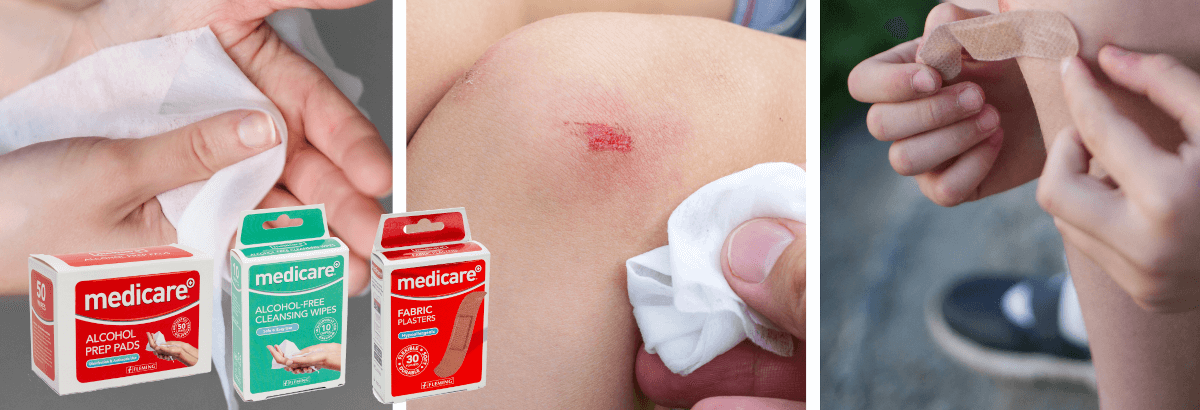Headlines
- Gentle Daily Ear Care with Medicare Ear Spray
- Breathe Easy with Medicare Nasal Spray
- Fleming Medical Renews Support for Irish Heart Foundation’s “Before Damage is Done” Campaign with over €25K Donation
- First Response for Minor Burns: Why MD508 Medicare Burn Spray Belongs in Every Medicine Cabinet
- Step Smart: Introducing the New Medicare® Footcare Range
Summer First Aid Tips & Tricks
22 June 2021
Summertime can present more opportunities for little emergencies. Make sure you are Rescue Ready for anything that may come your way, particularly burns and scalds, cuts and scrapes, and insect stings and bites.
Burns & Scalds
The summer can present a lot of opportunities for burns to occur. Common mishaps include barbequing, sunburn or being around a campfire. To ensure you are prepared for these, read below and make sure to stock up on what you need.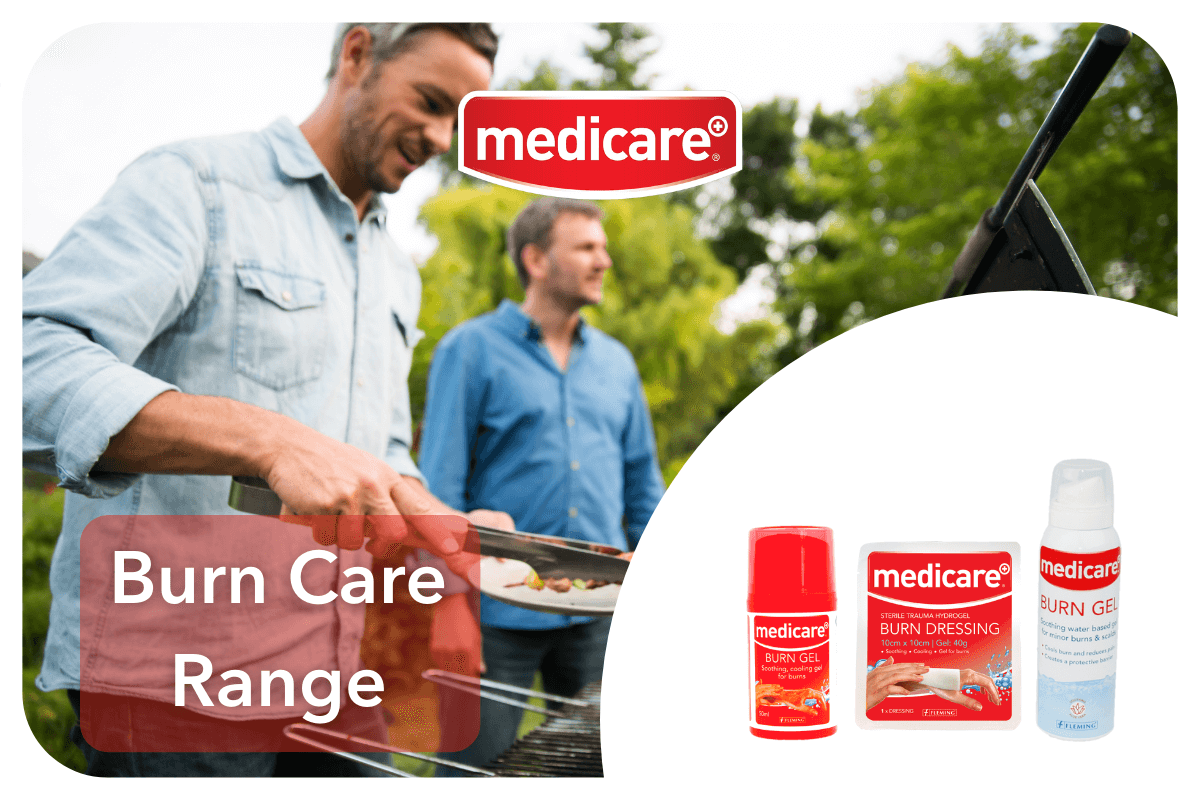
Types of Burns:
Knowing how to correctly treat burns and scalds is an important part of home first aid. In order to treat a burn, you need to know what level of burn you’re dealing with.
1st Degree Burns: Mildest skin burn where the epidermis is damaged. Skin will be red, slightly swollen and painful but not blistered.
2nd Degree Burns: Epidermis and part of the dermis are damaged. Skin will be pale pink, there may be blistering and swelling.
3rd Degree Burns: Most serious burn, all three layers of skin are damaged. The skin is burnt away, and the tissue underneath may appear pale or blackened.
How to treat a burn or scald:
- Cool the burn with running water for 10-30 minutes, ideally within 20 minutes of the injury occurring.
- Remove rings or other tight items from the burned area. Try to do this quickly and gently, before the area swells.
- Apply Medicare Burn Gel to relieve pain and cool skin further. The pain from a burn can also be treated with an OTC pain reliever.
- To protect against infection and minimise skin damage, apply a Medicare Sterile Burn Dressing. Gently lay the dressing across the burn site. Secure the dressing in place using a conforming bandage.
- You will need to decide whether further medical treatment is necessary. Always consult your GP if you are concerned about a burn or scald.
Cuts & Scrapes
Increased activity outside can lead to more cuts and scrapes than usual. Make sure you know what to do when faced with the smallest scrape to a deep cut to avoid infection:Clean: Infections in cuts and lacerations can often come from the hands. Before attending to a cut or laceration, make sure to clean your hands with an alcohol prep pad. Medicare Alcohol Prep Pads have a 99% alcohol content to clear germs away from your hands before you attend to a cut or laceration
Apply: Applying a non-alcohol solution, spray, cream or wipe to a cut or laceration before covering with a plaster or dressing can help ward off infection, encourage healing and reduce scarring. Medicare Alcohol-Free Cleansing Wipes are ideal for this purpose as they are gentle on skin and are no-sting.
Cover: Covering a cut with a sterile dressing or plaster after cleaning it can ward off infection and promote healing. Medicare Fabric Plasters are hypoallergenic and allow the wound to ventilate, and their skin-friendly adhesive won't irritate the skin.
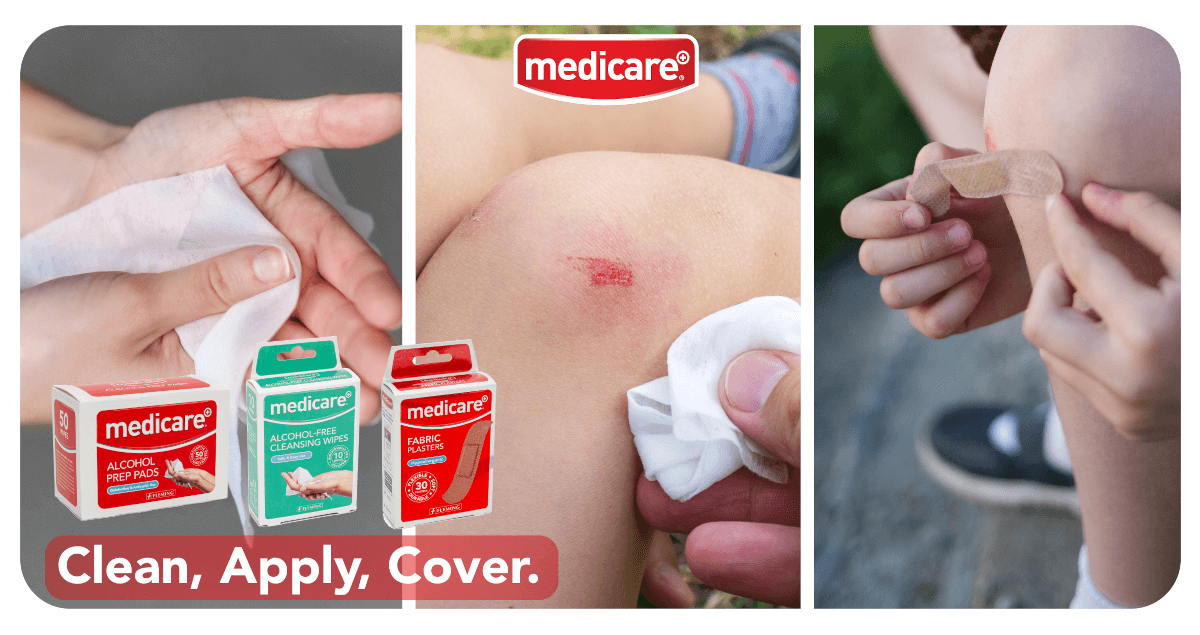
Have a look at our Clean, Apply, Cover blog postfor an in-depth view on how to treat cuts, scrapes and wounds.
Insect Bites, Stings & Ticks
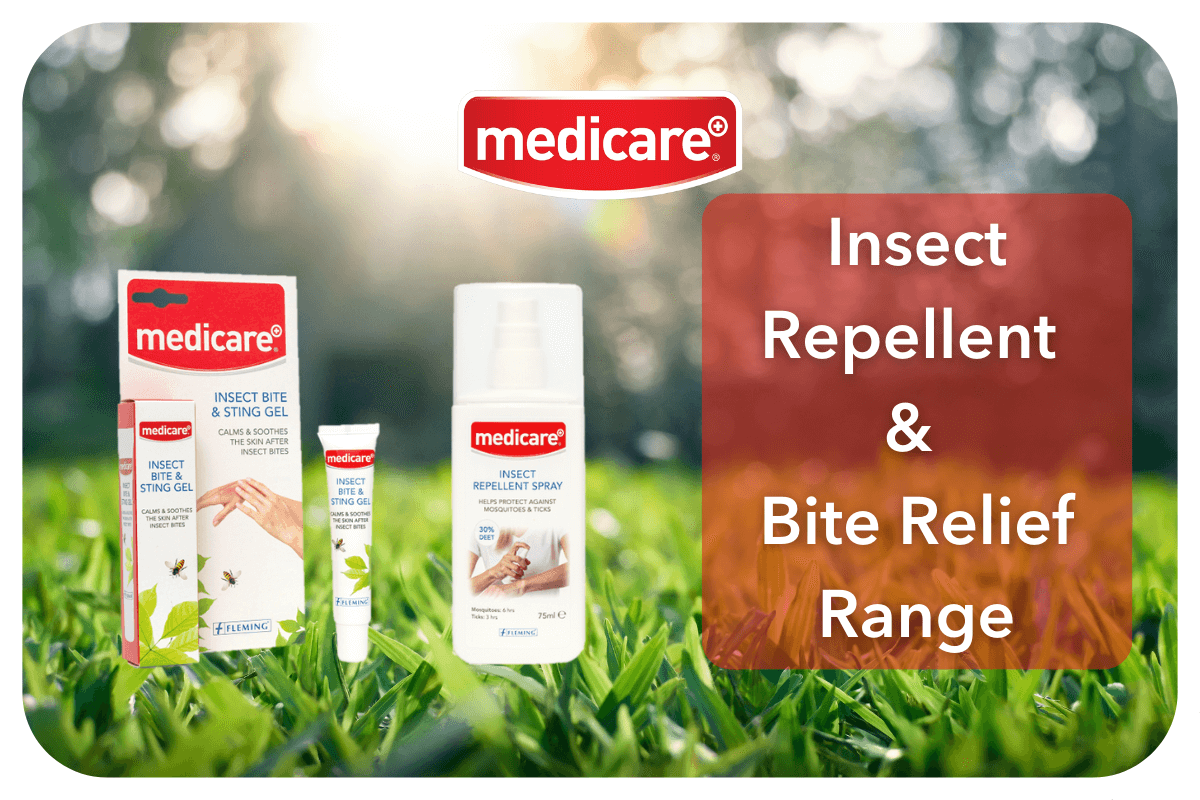
Ever wondered why bug bites itch?
When a bug bite breaks the skin, a person’s body recognises the insect's saliva as a foreign substance, which causes an immune system response. The immune system produces histamine, which increases blood flow and white blood cell count around the affected area, causing inflammation or swelling. Insect bites itch because histamine also sends a signal to the nerves around the bite.
Mosquitoes, midges and ticks are extremely prevalent over the summer months meaning stings and bites are on the rise.
Ticks are usually found in long grass, leaves, and on low plants. There are usually more ticks in woodland and forest areas, but they can be found in fields and parkland, especially where there is livestock and deer. (ticktalkireland.org/frequently-asked-questions/) DEET sprays are an essential tick and insect repellent, always make sure to spray yourself before going camping, hiking or walking in fields.
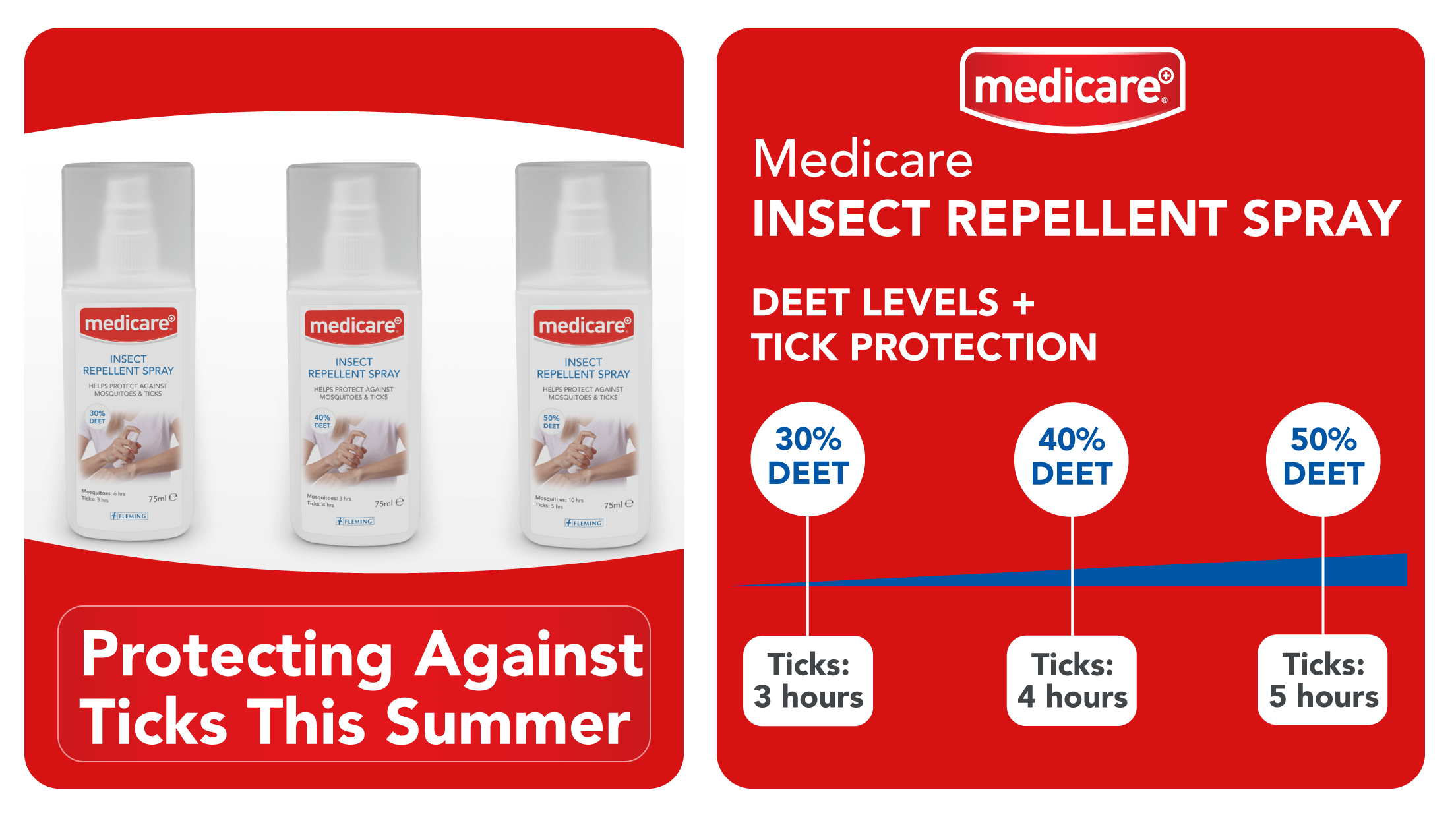
There are certain steps you can take to prevent bites and stings and treat them when they occur:
Prevention:
- Protect yourself by using Medicare Insect Repellent DEET Spray
- Do not wear any strong-smelling perfumes or scents
- Wear light-coloured clothes so ticks or other bugs are visible
- Cover your arms and legs when walking through grassy areas or camping
- Cover the back of your neck and if you have long hair, tuck it in
Treatment:
- Depending on the type of sting/bite it is, make sure the stinger is removed from the area
- Clean the wound to avoid infection
- Use Medicare Insect Bite & Sting Gel to soothe swelling and itchi
- If you have multiple bites, an over-the-counter antihistamine can help with swelling
- Do not scratch the bites as they can become infected.
To stay up to date on our first aid tips and tricks and new products follow us on social media:

 Fleming Medical UK
Fleming Medical UK

